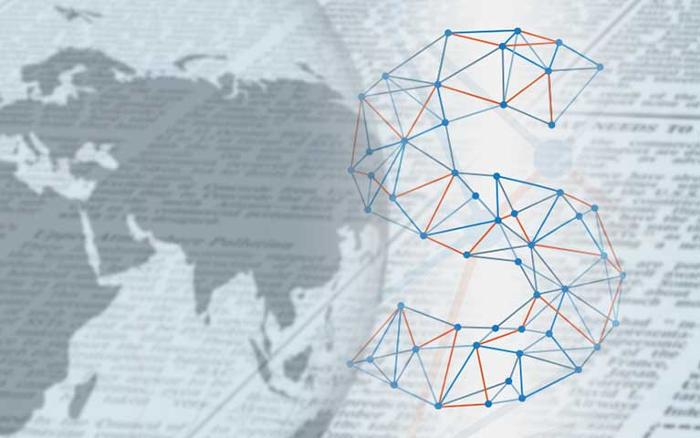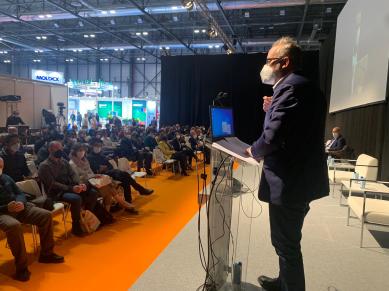

Experts at SICUR affirm that businesses must prevent psychosocial risks
The Director of the INSST noted that 38.4% of fatal accidents at the workplace in 2021 were due to non-traumatic pathologies
The European Strategic Framework 2014-2020 underscores the processes of digital transformation and their impact on health and safety
Representatives from Agbar, Aena, and Endesa explained the risk prevention strategies at their companies
Psychosocial risks are present in every company and the employers need to ensure their preventive management, warned the participants at a workshop at SICUR, the International Security Trade Fair organised by IFEMA MADRID and held on February 22-25. In addition, according to the experts, there is a growing awareness at the companies on the importance of preventing these threats and their consequences. The encounter, which analysed the new challenges in occupational health and welfare, how to approach psycho-emotional health, and prevention applied to the new models of working, was organised by the Fundación Mapfre and the Spanish Association of Occupational Prevention Services (AESPLA).
The workshop was presented by Antonio Díaz, President of AESPLA, and Antonio Guzmán, Manager of the Health Promotion Area at the Fundación Mapfre, both of whom underscored the growing importance of psychosocial risks at companies in every sector and activity. Next to speak was Carlos Arranz, Director of the National Institute for Occupational Health and Safety (INSST) of the Ministry of Work and Social Economy, who affirmed that "we live in a fast-paced world in which all types of pathologies have increased and have a major impact on people, businesses, and society", making it fundamental to have the right tools to "control the factors and situations" that cause them.
In this way, Arranz referred to the increase in work-related stress and mental and psycho-emotional risk factors. He pointed out that 38.4% of fatal accidents at the workplace in 2021 were due to non-traumatic pathologies. he also warned that "we cannot speak about occupational health and safety without referring to the fight against precariousness and temporariness, since precarious working conditions influence the workers' health; as well as striking a balance between work and family, and the creation of safe, healthy working environments".
To improve the situation, he explained that "we must analyse the legal provisions we have to see what they are lacking in relation to the new work-related risks, and carry out research projects on them and provide companies with tools to handle them". On their part, companies, must "become aware of the importance of health and promote actions to identify all the risks".
Impact of IT
María Jesús Otero, head of the Technical Unit on Psychosociology at the National Centre for New Technologies (CNNT) of the INSST, highlighted the psychosocial management of models of hybrid and remote working. Thus, she affirmed that "new advances have equipped them with an immense and abrupt digitalization, and exposure to an intensive use of connectivity and all the information and communication technologies".
The European Strategic Framework on occupational health and safety matters 2014-2020 had already noted that "an evaluation was needed of how work is organized due to the evolution of IT and its impact on the organizational and individual level". And the new 2021-2027 framework once again clearly points to "all these processes of digital transformation and their impact on health and safety". According to Otero, "we find ourselves with new ways of organizing work, characterized by flexible models of in-office, remote work, and working from home"; and preventive management requires fitting it into the new environments and the risks that arise in them.
Among the workers' rights cited by the expert are "effective protection of psychosocial health, conciliation and adaptation, the right to privacy, data protection, and the right to digital disconnection". And among psychosocial risk factors, "the lengthening of the work day, intensifying demands, hyperconnectivity, and mediated control". In addition, she warned of new risks such as "techno-stress, cyber-stalking, cyber-violence, and psycho-emotional harm". In conclusion, she affirmed that "ensuring psychosocial health is a priority matter and a commitment everyone must share”.
Identification and evaluation
María Teresa López, Coordinator of the Psychosocial Diagnostic Department at the Affort Health consultancy firm, analyzed the new approach that Spanish legislation gives to psychosocial risks, granting them "greater importance". As she affirmed, these risks "are present in every company, and the employer is obligated to ensure their preventive management, and must identify and evaluate them accordingly".
Among the conditions that this evaluation must meet, she cited " the participation of the company management, consultation with the workers, training of officers, use of various sources of information, guaranteed confidentiality, the establishment of units of analysis, and the use of quantative, qualitative, and complementary techniques and simplified methods". López added that "there is greater awareness on the company side of the importance of preventing psychosocial risks and their consequences".
New challenges in occupational health
The workshop held in the framework of SICUR also included a round table on the new challenges in occupational health and welfare at companies. Different practical experiences were shown and representatives from Agbar, Aena, and Endesa all took part.
Rodolfo Manuel Ruiz, Head of Agbar SSL for Madrid, explained the frequency with which Agbar updates their risk assessments and added that they have "the collaboration of prevention services specialized in the psychosocial area". Furthermore, he highlighted the importance of having action plans be "global and particular at the same time, to adapt to the reality at all the workplaces"; and of having the participation of the representatives from the company, the human resources department, and the workers. In addition, he underscored the importance of "training and sensitivizing", and of implementing a process of "a culture of fairness, aimed at communication and facilitating a climate of trust throughout the work force".
Noelia Martínez, Head of the Selection, Training, and Occupational Risk Prevention Division at Aena, affirmed that "the pandemic has made psychosocial risks a main concern in improving the well-being of the workers". She went on to explain that "at Aena, for years we have been making plans to assess this type of risk and adjusting them to fit each workplace". Moreover, "we are establishing a culture of how to prevent them, which involves not only management but also all the workers".. According to this expert, "studies indicate that 60% of mental illnesses at the workplace are avoidable".
Finally, Jaime Sánchez-Cano, Head of the Prevention Service at Endesa, noted that "we have a consolidated process for risk prevention in which we have reinforced the prevention of psychosocial risks". He also noted that "every three years we do a re-assessment and every two, a followup survey, which we incorporate in the preventive planning that involves the entire organization".





